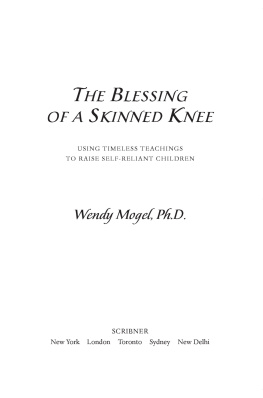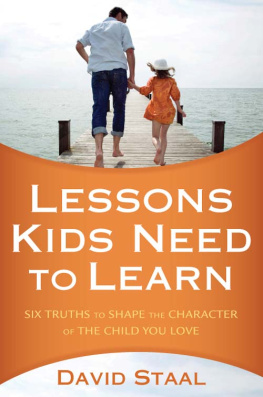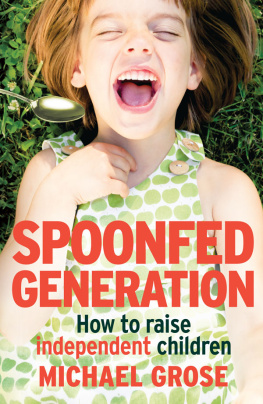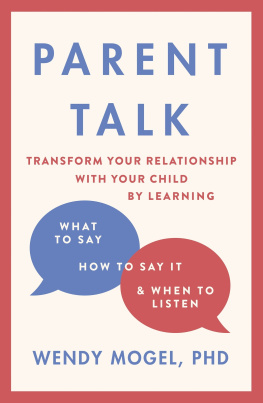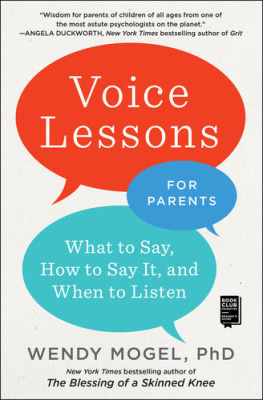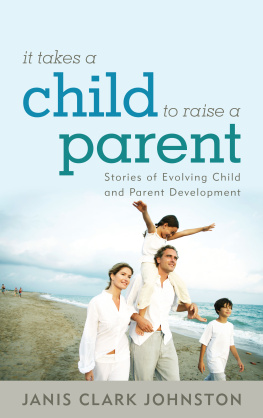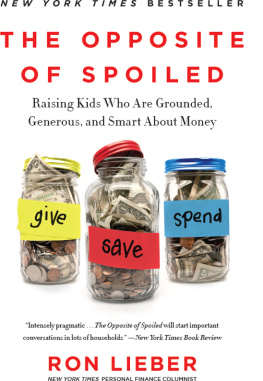When writing about children in general, I randomly alternated the use of female and male pronouns for the sake of equality. While I believe that God transcends gender, it was impossible for me to completely eliminate pronouns (God, in Gods wisdom) or to alternate them (God, in Her wisdom) without sounding awkward. Instead, Ive resorted to the grammatical convention of using the pronoun He when referring to God, for the sake of the graceful flow of ideas and language, not because I think of God as either anthropomorphic or male.
Determining what is holy in Gods eyes is under constant examination by serious, involved Jews. In the past two decades there have been many invigorating shifts and readjustments in the practices of each denomination. Orthodox Jews are experimenting with new roles for women and engaging in active interdenominational dialogue. Reform Jews are reclaiming traditional practices and celebrations and taking on rituals rejected by the founders of their movement.
When I refer in the text to traditional Jews and traditional Jewish practices, I am pointing to the set of teachings, rules, and traditions that are most commonly followed by Orthodox Jews. Im using these practices to illustrate the principle of religious teachings in action, not as an exclusive model or blueprint for holy living.
CHAPTER 1
How I Lost One Faith and Found Another
Much about the world has changed since this book was first published in 2001. But much about parenting has stayed the same. I have updated some cultural references to reflect our times, but the timeless wisdom remains unchanged.
Wendy Mogel, Ph.D., July 2016
For fifteen years I practiced child psychology, and for fifteen years I loved doing it. From my seventh-story office window, I had a beautiful panoramic view of the Hollywood Hills to the north and Beverly Hills to the west. From inside my consulting room, I had a view of the families who lived in these privileged neighborhoods. Most of my time was spent conducting psychological tests and doing psychotherapy with children. Like anyone who enters a healing profession, I gained great satisfaction from discovering the roots of a problem and then showing both parents and children what could be done to help remedy it. I was successful. I made a good living.
From the outside, the families who came to see me looked as if they had ideal lives. The parents were committed to raising successful, happy, well-adjusted children. They attended every soccer game. They knew to shout, Way to go, Green Hornets! to cheer the whole team, not just their Nicole. Father and mother went to school conferences and listened hard and well. They were involved. They could recite without hesitation the names and most telling personality traits of their childs three closest friends. If a child scored low in school, the parents hired a tutor or educational therapist right away.
Ten years ago I started to feel that something fundamental was amiss. My discontent began when I first noticed an odd pattern in my testing practice. I had grown accustomed to dealing with all levels of psychological distress, from severely disturbed children to those who were mildly unhappy. Often I had to deliver news that was painful and disappointing for parents to hear. I might have to say, Even though Jeremy knows lots of Major League Baseball stats by heart and seems bright and alert to you, his IQ falls well below normal and he needs to be in a special school program. Or, The reason Max washes his hands so much isnt because he is fastidious. This behavior is a symptom of an obsessive-compulsive disorder that showed up on every psychological test I gave him.
I thought of these as the hard news days, and I never looked forward to them. Parents nearly always reacted to my report with great resistance. Its understandableparental denial is born of fierce love and fear, and its a hard defense to break through. But most of the mothers and fathers rose to the challenge, tackling their childs problems with compassion and commitment.
Fortunately, there were also plenty of good news days, when I could report to parents that their childs problems were within normal limits, meaning they fell within the broad range of expectable attitudes, moods, and behaviors for that particular age. It was a relief to deliver the reassuring message that a child was simply going through a difficult phase, and that his or her overall psychological profile was healthy.
Then I began to see a curious new pattern: some of the good news parents were not welcoming my good news. Instead of feeling relief, they were disappointed. If nothing was wrong, if there was no diagnosis, no disorder, then there was nothing that could be fixed. My child is suffering! complained the worried parents. And I had to agree. The children of these fine parents were not thriving.
Some children had difficulties throughout the day. In the morning there were complaints: My tummy hurts.... Im not going to school because Sophie used to be my best friend and now shes always mean to me.... Coach Stanley is unfair. He wants us to run too many laps in P.E. After school there were battles over when and by whom homework would be completed, or unceasing demands for goods and services: Everyone gets to stay up later than I do.... All the other kids in my class get to watch PG-13 movies.... All the other parents let their kids get their ears pierced.... All my friends get more allowance than I do.
At the dinner table there was conflict about the desirability of the food that had been prepared and whether or not the child was in the mood to eat it. At bedtime there were more complaints: I just need to watch one more TV show.... My ear hurts... I have bad pains in my legs and my arms.... Im afraid to sleep without the light on. When the parents tried to explain themselves to the children (You need to go to school because... You need to eat dinner because... You need to go to sleep because...), the children turned into little attorneys, responding to each explanation with a counterargument.
It may sound as if these problems are mild, typical of normal friction in the relationship between young children and their parents. But the scenarios these parents described to me were not mild. The daily problems were unremitting and the only let-up came in very specific circumstances. The perfect alignment of the planets looked like this: if the children felt protected from any sort of danger, relieved of pressure to perform or take responsibility, and sufficiently stimulated by having lots of fun things to do, they were able to relax and be cooperative, pleasant, and respectful. But these moments were rare. Much of the time both the parents and the children were miserable and frustrated.
Some of these children were on the outer edge of normal limits. I was often asked to treat cases of bed-wetting, constipation, poor grades in children with high IQs, or children with serious difficulty making and keeping friends. But none of these children fit the category of the hard news cases. None seemed to be suffering from any kind of real psychopathology. Instead, everyoneparents and childrenseemed off course, unmoored, and chronically unhappy.

